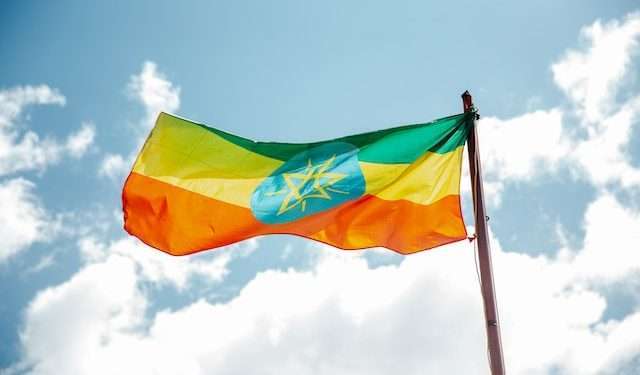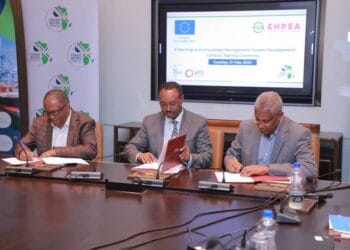Ethiopian farmers and exporters can now apply for, receive, and send phytosanitary certificates entirely online following the successful launch of the country’s fully operational Integrated Export and Import Certification System (IEICS), known as the e-Phyto system. The transition from paper-based to digital processes will significantly reduce clearance times, cut administrative costs, and ease market access for agricultural products destined for regional and global markets.
The platform is fully integrated with the International Plant Protection Convention (IPPC) e-Phyto hub enabling certificates to be sent directly to importing countries. This removes the need for physical document exchange, helps prevent fraud, and reduces the carbon footprint associated with courier and manual processing. Exporters have already reported smoother clearance for shipments, particularly for perishable goods such as fruits and vegetables.
EU Acting Head of Cooperation, Ms Beatrice Neri said: “The EU is proud to see the system in action. This is a practical, high-impact change for Ethiopia’s agricultural trade. By digitising certification, we are helping farmers and exporters meet global market standards, reduce waste, and move goods more efficiently across borders. The e-Phyto system will strengthen Ethiopia’s role in regional and global trade, creating more opportunities and sustainable growth for communities.”
Speaking on behalf of AFD, Country Director for Ethiopia, Louis-Antoine Souchet, added: “The launch of the e-Phyto system marks a significant milestone in modernising Ethiopia’s agricultural trade. It offers farmers and exporters a dependable tool that strengthens competitiveness while supporting sustainable economic growth
EAA Deputy Director and Head of the Ethiopian National Plant Protection Organisation (NPPO), Dr Wondale Habtamu, said: “The e-Phyto system is now a reality for our farmers and exporters. They will no longer have to travel with paper documents or wait days for approval. This is a practical change that is making trade Beatrice NERI faster, more transparent, and more reliable.”
TMA Country Director for Ethiopia, Ewnetu Taye Chufa, said: “With the system now live, the benefits are immediate-fewer delays, faster market entry, and better prospects for smallholder farmers to reach high-value markets.”
Agriculture remains central to Ethiopia’s economy, contributing 34.87% of GDP and employing over 62% of the workforce (World Bank, 2024; AfDB, 2023). With smallholders producing 95% of agricultural output (FAO, 2023), the platform offers direct benefits to rural communities seeking greater market access.
Anchored in the Horn of Africa Initiative and aligned with the EU’s Global Gateway Strategy, the project forms part of a wider effort to deepen regional economic integration, strengthen resilience, and attract investment in both infrastructure and human capital.
The e-Phyto system is part of Ethiopia’s broader trade modernisation agenda. It strengthens competitiveness, supports compliance with global standards, and creates more secure income opportunities for rural communities whose livelihoods depend on agricultural exports.
















Discussion about this post